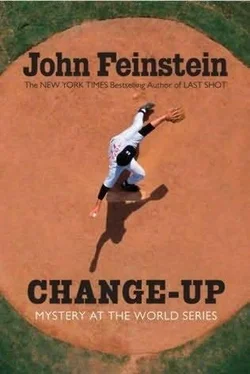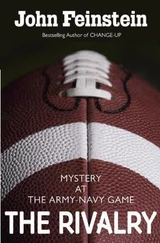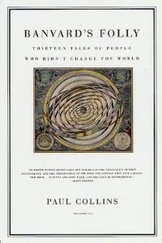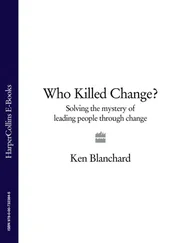Stevie had noticed during the playoffs that Boone was one of those rare players who actually knew the names of media people. Boone looked up, overhearing the conversation.
“He wasn’t here today at all, Bobby,” he said to Kelleher.
“Gave him the day off, huh?” Kelleher said.
“I think he’s holed up with his agent,” Boone said. “Let the bidding begin, eh?”
“That stuff can’t wait until after the series?” Kelleher said.
“You gotta strike while the iron is hot, man,” Boone said. “Unless he wins game six or seven for us, he’ll never be hotter. I mean, my God, if The Rookie was a movie, what’s this?”
Stevie remembered watching The Rookie with his dad. It was based on a true story about a pitcher who hurt his arm in his twenties, became a high school baseball coach in Texas, and then, in his midthirties, signed after an open tryout by the Tampa Bay Devil Rays. He made it to the major leagues briefly as a relief pitcher. Stevie had liked the movie; his dad had loved it.
“Good point,” Kelleher said.
“Started the season in the minors, never won a big-league game, and he pitches a one-hitter in the World Series!” Boone said. “Not to mention being a good guy and a single dad. Heck, I’d love to be his agent right now.”
Stevie and Kelleher looked at one another, both thinking the same thing: what was there about Norbert Doyle that all the people who wanted to tell his story didn’t know?
Stevie noticed Wil Nieves walking through the room to his locker. “I’m going to talk to Nieves,” he said, hoping there wouldn’t be a mad dash to talk to him. Most of the writers were talking to Ryan Zimmerman at that moment.
“Go for it,” Kelleher said.
Stevie walked over to Nieves and was relieved to see no one else walking in the same direction.
“Wil, hi, my name is Steve Thomas, I work for the Washington Herald,” Stevie said, putting his hand out when Nieves, having tossed his catcher’s glove into his locker, turned to face him.
Nieves took his hand and gave him a friendly smile. “I know you,” he said. “You were there last night when those two guys almost got into a fight.”
“Right,” Stevie said.
Nieves knew more. “You and that girl, Susan, right? You’re the two kid reporters who are so famous.”
“I don’t know about famous…,” Stevie said.
“Don’t be modest,” Nieves said. “I read about you in our playoff program.”
The Nationals had done a story on the fact that Stevie and Susan Carol were covering them for the Herald and the Post in their postseason program, which was sold at the ballpark for the startling price of $10. Stevie’s dad had bought one but said, “When I was a kid going to the old ballpark in Philadelphia, you paid twenty-five cents to buy a scorecard and a program- and they gave you a pencil to keep score with.”
“What was it like watching Babe Ruth?” Stevie had said in response to his father’s moaning.
“Well, thanks,” Stevie said to Nieves. “Since I’m so famous, can I talk to you for a minute?”
“Fire away,” Nieves said. He sat down on the chair in front of his locker and pulled a chair over from the one next to his and offered it to Stevie.
Stevie didn’t try to pick up where they had left off in Boston the night before. He asked Nieves first about his own background, which was actually interesting. He was from Puerto Rico and had signed with the San Diego Padres as an eighteen-year-old. He had spent most of the thirteen years since then in the minors, making it briefly to the majors with the Padres in 2002 and then with the Yankees for parts of 2005, 2006, and 2007.
After the Yankees had released him, he had signed with the Nationals as a minor-league free agent and had stuck with the team for most of two seasons because he had finally been able to hit a little. He had hit his first- ever major-league home run early in 2008.
As Nieves talked, Stevie worried that someone might interrupt them. A couple of times he saw writers approaching, but they veered away. There seemed to be an unwritten rule that if someone was seated, talking to a player, you didn’t interrupt.
“So, would you say last night was the biggest thrill you’ve had in baseball?” Stevie said, steering the conversation back to the present.
Nieves thought for a minute. “That and the home run,” he said. “The home run was a walk-off in the ninth inning, so that was pretty cool too.”
Stevie asked Nieves again about Doyle’s performance and then, slowly, returned to what he had said the night before. “Before we were interrupted last night, you were starting to talk about knowing Norbert in the minors…”
“Or not really knowing him,” Nieves said, smiling.
That was a relief. Stevie had been afraid a night’s sleep might have made him more cautious about discussing his team’s sudden star.
“Right,” Stevie said. “Nice guy, just shy…”
“Not exactly shy,” Nieves said. “Always friendly. I’m not sure I’ve ever seen him laugh, though, really have fun. Even when we were celebrating winning the pennant last week, we had to practically beg him to get involved.”
Stevie remembered that. He had been standing with Doyle while his teammates kept trying to get him to join them in the celebration. Then again, he hadn’t been on the roster for the playoffs.
“You said something about joy not being part of his life…”
“I can’t say it isn’t part of his life, I’ve just never seen it. I asked him about it once-”
“You did?” Stevie said, realizing instantly he had made a mistake by stopping him in midsentence and perhaps appearing a bit too eager. For the first time since they had started talking, he saw Nieves hesitate.
“Well, yeah, it was no big deal or anything…”
This time Stevie said nothing. Thankfully, Nieves filled the silence.
“It was a few years ago. We were both in Columbus, which was a Yankee team back then. He’d been traded over in midseason and I was the only guy on the club he knew, so we hung out a little on the road. One night at dinner I asked about his kids. I knew his wife had died years earlier in the accident…”
He paused again. “You know about that, right?”
“Yes,” Stevie answered honestly. “He told me about it the other day.”
Nieves nodded. “He started talking about how proud he was of them, what great kids they were, and how much he wished his wife could be around to see them.”
“Uh-huh,” Stevie said, not wanting to interrupt, just encouraging him to go on.
“Perfectly understandable, right?” Nieves said. “But then he said something I didn’t understand.”
Stevie waited, afraid to say anything.
“He said that sometimes when he looked at them, he believed in God because they were so wonderful. But then, when he thought about it, he decided God was pretty cruel, because every time he looked at his kids, he was reminded that he had taken their mother away from them.”
Nieves stopped suddenly. Stevie was scribbling madly in his notebook. “Oh wait, hang on, I shouldn’t have said that. Please don’t write that. I don’t even know what Norbert meant by that.”
“I promise I won’t unless I talk to him about it,” Stevie said.
Nieves sagged a little. “Okay,” he said finally, “that’s fair.”
“But one more question,” Stevie asked. “What do you think he meant? They were hit by a drunk driver. How could that be his fault? Or was he saying, you think, that it was God’s fault?”
“That’s what I asked him.”
“What did he say?”
“Nothing,” Nieves said. “He just asked the waitress for some more iced tea.”
Читать дальше












